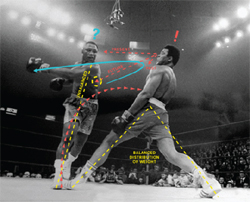Sport psychologists help athletes set goals that are ambitious but attainable. An athlete who is only motivated only by winning is more likely to lose motivation when the competition doesn’t go his way. A sports psychologist will help him set goals that are intrinsically motivated, such as a finishing time rather than order of finish in a swimming race. A sports psychologist can also help set intermediate short-term goals that are process-oriented, meaning that they focus on one aspect of the overall goal. For example, a swimmer might set a goal of improving his flip turns.
Visualization
Tiger Woods exceeded expectations in the 2008 Pro Tour not by spending hours on the course, but by sitting quietly and imagining his swing. This technique, called visualization, makes a competitive situation feel familiar because you have already imagined it in detail. When an athlete pictures herself reacting successfully to a competitive situation, her body responds by reinforcing the neural pathways she needs to complete the action successfully. A figure skater who lacks confidence in her double axel might hire a sports psychologist to walk her through a visualization routine that prepares her body to land the jump gracefully.
Self-Talk and Confidence
A successful athlete must learn not only to handle pressure, but to thrive on it. A sports psychologist teaches athletes to use self-talk and repetition to enhance motivation and reinforce self-esteem. Muhammad Ali used self-affirmation to become a champion. Ali stated “I am the greatest” so often that he believed it, and so did his opponents, giving him the competitive edge.
Relaxation and Concentration
Many athletes who have achieved breakthrough performances say that it was “effortless,” or that “everything else disappeared.” This feeling that some call “flow” and others call “the zone” is a state where the athlete acts without thinking. A sports psychologist may teach a baseball player a routine that he can use to block out the sound of heckling fans and focus on nothing but the pitch.
Coping with Injury
An athlete’s identity, self-esteem and stress relief may come primarily from his sport. When he is injured and must take a break from competition and training, his world goes topsy-turvy. His identity as a team member dissolves. He misses important competitions and loses fitness as his competitors get stronger.
A sports psychologist can help an athlete cope with these issues by teaching him to explore other aspects of his personality. Lance Armstrong describes his identity transformation while fighting cancer in his book “It’s Not About the Bike.” In a matter of months, Armstrong went from an elite cyclist to a man who might not live through the year. After Armstrong recovered from cancer, his efforts to fight cancer became as important to him as his efforts on the bike.
Read more: What Is Sport Psychology?



























very good and interesting especially for coaches and athletes